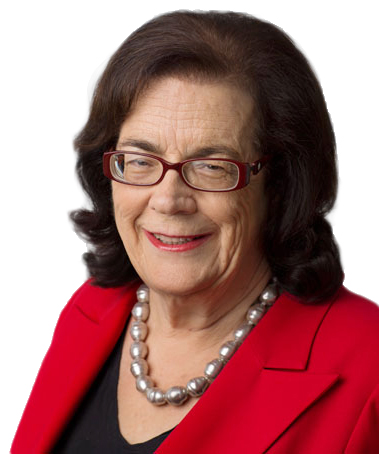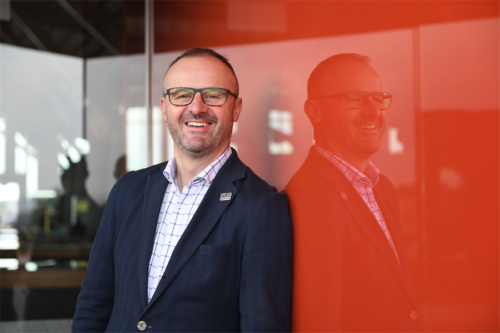Malcolm Turnbull slams the “deceitful” Prime Minister for giving Australia a reputation as untrustworthy, writes political columnist MICHELLE GRATTAN.
FORMER prime minister Malcolm Turnbull has accused Prime Minister Scott Morrison of trashing Australia’s reputation for trustworthiness and putting national security at risk, in a swingeing attack on his handling of the cancellation of the French submarine contract.

Turnbull also revealed that since the blow-up with France he had spoken to French President Emmanuel Macron – describing him as a friend and “an enormously important figure in global politics”. Macron has refused to take Morrison’s call, after the government quashed its contract effectively without notice.
Turnbull declined to go into the details of Macron’s reaction in their call but indicated French Foreign Minister Jean-Yves Le Drian, who accused Australia of stabbing France in the back, “was not speaking just for himself”.
“France believes it has been deceived and humiliated – and she was,” Turnbull told the National Press Club. “This betrayal of trust will dog our relations with Europe for years.
“The Australian government has treated the French Republic with contempt. It won’t be forgotten. Every time we seek to persuade another nation to trust us, somebody will be saying, ‘Remember what they did to Macron? If they can throw France under a bus, what would they do to us?’”
Turnbull said when Morrison did something domestically, which was criticised as slippery or disingenuous, it reflected on him and the government, but “when you conduct yourself in such a deceitful manner internationally, it has a real impact on Australia.”
“What seems to have been overlooked is that one of our national security assets is trustworthiness,” Turnbull said. Morrison’s admirers were praising him for his “clever sneakiness”, but this was “an appalling episode in Australia’s international affairs” and the consequences would “endure to our disadvantage for a very long time”.
Turnbull said anyone who raised the unresolved questions about the AUKUS deal for nuclear-powered subs was essentially accused of being unpatriotic.
“I can say to you, I am not getting any lectures on patriotism from Scott Morrison. I defended the national security of this country and its national interest and I know the way that he has behaved is putting that at risk.”
Turnbull said Morrison defended his conduct by saying it was in Australia’s national interest. “So, is that Mr Morrison’s ethical standard with which Australia is now tagged: Australia will act honestly unless it is judged in our national interest to deceive?”
The government should have been honest and open with the French – who produce nuclear submarines – about exploring the acquisition of nuclear-powered boats. Macron would have been supportive, Turnbull said.
“Let us assume that after this discussion the conclusion was that only a US or UK submarine would do. If the contract was terminated at that point, nobody could say that Australia had been dishonest or sneaky. France would be disappointed, but not betrayed, disrespected or humiliated,” Turnbull said.
“Morrison’s response is to say that he could not be open and honest with Macron because the French might have run to Washington and urged Biden not to do the deal. That tells you a lot about how confident he is about the commitment of the Americans.”
Turnbull said despite its “awkward birth” he hoped AUKUS was “a great success. It should be. We are already the closest of friends and allies – none closer.”
Turnbull is off to Glasgow
Turnbull revealed he will attend the Glasgow climate conference
Asked what message it would send if Morrison did not go (the Prime Minister has indicated he might not), Turnbull said, “History is made by those who turn up. If Mr Morrison decides not to go to Glasgow […] his absence will send a pretty strong message about his priorities. This is a critical conference.”
Pressed on what Australia’s present 26-28 per cent 2030 emissions reduction target should be raised to, Turnbull said there were plenty of scientists who said it should be 70 per cent, but it should be at least 45 per cent or 50 per cent.
He was cagey on whether he would endorse climate-focused independents at the election if the government didn’t produce a satisfactory climate policy. Still a member of the Liberal party, he said “I haven’t made a decision about that”. “I will wait and see, I reserve my rights, as they would say.”
The NSW government this week boosted its 2030 emissions reduction target to 50 per cent, from its previous target of 35 per cent reduction.
Morrison is negotiating with Nationals leader Barnaby Joyce to embrace a net zero by 2050 target for the Glasgow conference.
In awkward timing on Wednesday Treasurer Josh Frydenberg, who is preparing the way for the 2050 net zero target, and Nationals Senate leader Bridget McKenzie, who took a swipe at Frydenberg this week, appeared jointly. They were talking about the coming end of the COVID disaster payment, but were inevitably put on the spot about climate policy.
McKenzie wrote in her opinion piece in the Australian Financial Review: “It is easy for the Member for Kooyong [Frydenberg] or the Member for Wentworth [Dave Sharma] to publicly embrace net zero before the government has a position, because there would be next to zero real impact on the way of life of their affluent constituents”.
Questioned about this Frydenberg said: “Climate change has no postcode. Climate change is a global challenge that requires national solutions.”
He said the government was “having very positive and constructive internal discussions. Not everyone will agree on every point.
“But it shouldn’t be seen as a binary choice between the regions and jobs. It shouldn’t be seen as a binary choice between city electorates or suburban electorates and regional electorates.
“When you reduce emissions in accordance with a well-considered, funded plan, you actually create jobs.”
McKenzie said one message in her opinion price was to challenge the assumption that “rural and regional Australians are anti climate and the National Party anti–caring for the climate.”
Her second message had been “that we had a job to do in the National Party and that is to stand up for our constituents and the industries that not just prop up our own local economies, but indeed prop up our national economy”.
“And the third message was that in this very, very serious debate, there are MPs out there, Josh isn’t one of them, Sharma isn’t one of them, but there are MPs out there who want to be cool for the climate, want to be cool on climate change, want to be popular without actually understanding and assessing and evaluating the consequences of these decisions.”
Michelle Grattan is a professorial fellow at the University of Canberra. This article was originally published on The Conversation.
Who can be trusted?
In a world of spin and confusion, there’s never been a more important time to support independent journalism in Canberra.
If you trust our work online and want to enforce the power of independent voices, I invite you to make a small contribution.
Every dollar of support is invested back into our journalism to help keep citynews.com.au strong and free.
Thank you,
Ian Meikle, editor





Leave a Reply